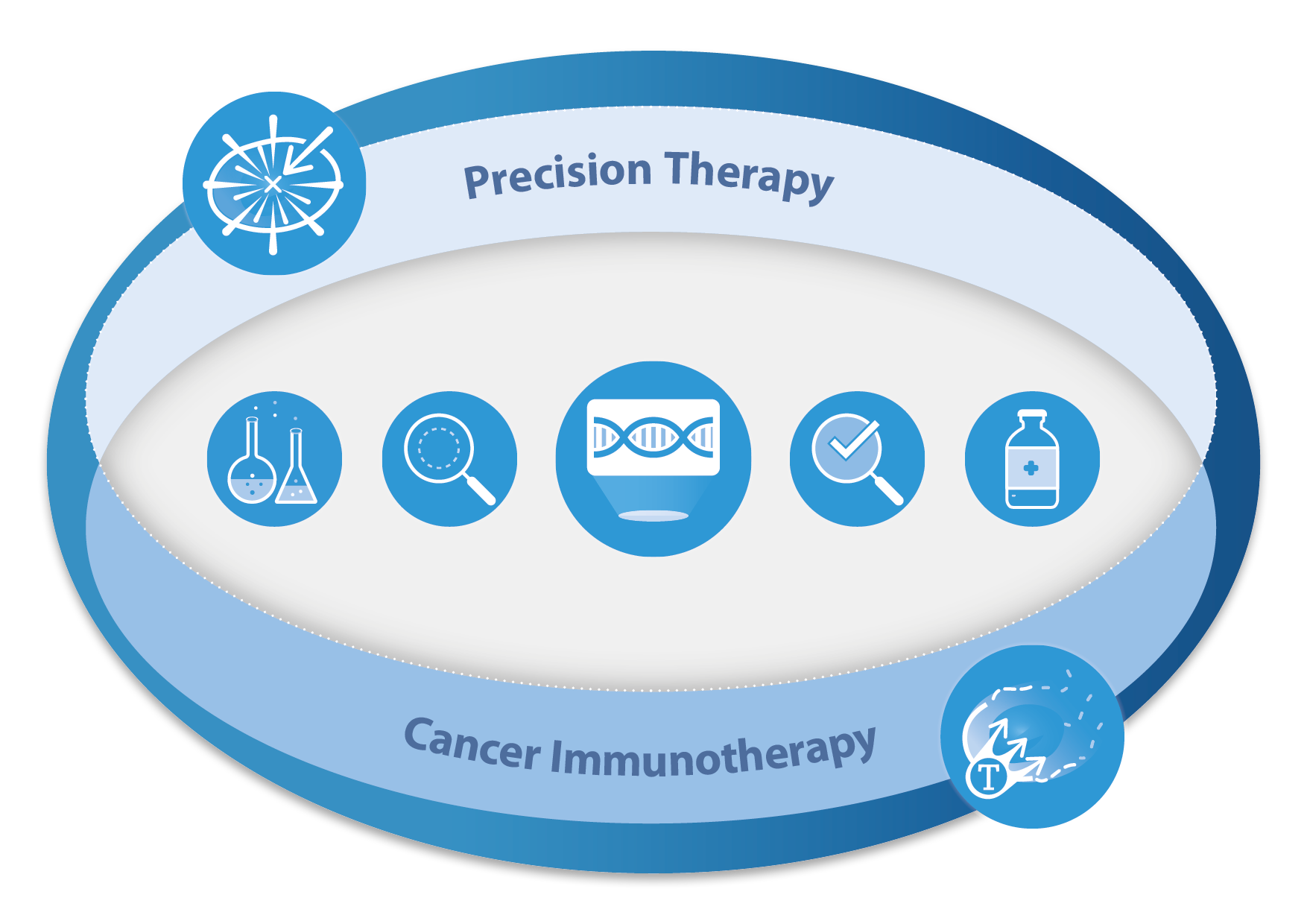Precision Medicine
Quality. Flexibility. Short Turnaround Time.
Precision Medicine is tailored to the individual patient instead of a one‐drug‐fits‐all model. It has been very successful in the area of inhibitors targeting BRCA-mutant cancers with PARP inhibitors and specific oncogenic kinases, such as EGFR, BRAF, ALK and BCR-ABL. There is tremendous potential for more Precision Medicine. By finding sensitive cancer subtypes and developing selective therapeutics, the therapeutic efficacy of a drug or drug combination can be enlarged, leading to a much greater chance of success in clinical trials.
It is our mission to help to bring improved and novel therapies to the right patient population faster. We offer a set of complimentary services to enable Clients to characterize their compounds, to determine activities, selectivities and mechanism of action. We present results in a unique interactive format that facilitates easier and faster interpretation of results.
Oncolines™
Broad cell-based activity of drugs can be assessed via proliferation assays in a panel of cancer cell lines. The cancer cell lines in the Oncolines™ panel are from diverse tumour tissue origin and have been characterized with regard to the mutation status of more than hundred cancer-causing genes and by the expression of more than eighteen thousand genes. The drug sensitivity of the cell lines is determined in cell proliferation assays and is correlated to the cancer gene mutation status of the cell lines, yielding novel candidate drug sensitivity biomarkers as shown by Uitdehaag et al. 2019.
These biomarkers are used as selection markers for patient stratification (Zaman et al., 2017), while the drug sensitivity fingerprint of compounds in the entire Oncolines™ cell panel is used for comparative analyses with other anti-cancer agents, described by Uitdehaag et al. 2016, and for mechanism-of-action studies by Libouban et al., 2017. The Oncolines™ cell lines are also the basis of drug combination screens, as described by Uitdehaag et al. 2015.
Oncolines has a commercial license from the American Type Culture Collection (ATCC) for the 102 cell lines in the current panel. Clients of Oncolines order either full panel profiling studies or cherry pick cell lines from the panel based on specific characteristics, such as tumour origin or expression of certain cancer gene mutations.
ResidenceTimer™
Precision Medicine also concerns the precise targeting of your compound. Selective molecular drug-target interactions decrease the likelihood of off-target toxicity. The optimization of structure-activity relationship is facilitated by a variety of assays, such as the determination of the target residence time of a drug on its target (Uitdehaag et al., 2017). The longer the residence time, the longer the target is inhibited. The biochemical and kinetic selectivity of inhibitors form a basis for differentiation of drug candidates (Willemsen-Seegers et al., 2017). Further mechanistic understanding of the interactions can be provided by looking at the thermal stability of a protein in the presence and absence of a compound and resolution of drug-target crystal structures (Grobben et al., 2020).
Deliverables For You
We provide high quality results with a short delivery time. Direct contact between our staff and the sponsors results in efficient scientific and technical support. We provide cost-free consultation on next steps in research if desired by the sponsor.


